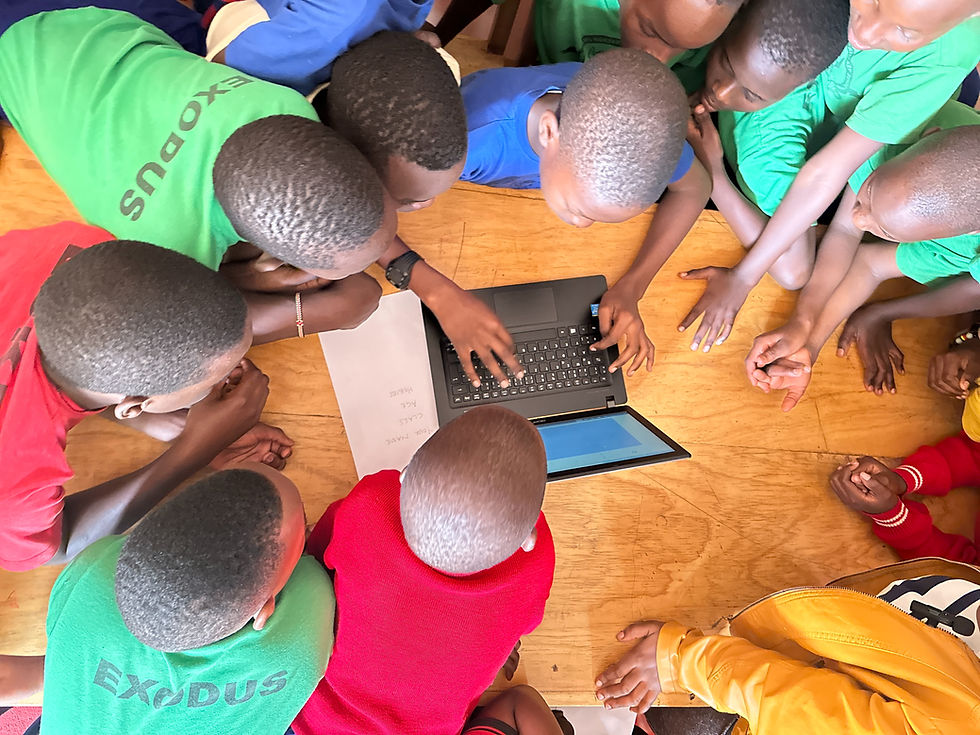What role do Libraries play in improving the Quality of Education?
- Ainabyona Joan
- Aug 21, 2023
- 3 min read
When I was growing up, I had an indescribable love for reading. I’d read anything and everything. From newspaper covers wrapped around cassava that we would buy for breakfast, to the words on every signpost on the road whenever we were traveling whether on foot or road transport, I made sure I get a glimpse of it. I was more excited about getting the window seat so I can get a clear view and read clearly.
Of course, I would get some words right and others, and I would forge my way around them.
My primary school didn't have that much of reading materials or a library at that. However, my mother did have some old books with torn covers packed up in old boxes. She was so amused by how I used to prefer to read than to play with dolls most of the time.
I remember reading Charles Dicken's Great Expectations, I wasn't following the story but I was amazed how people put words together. I also read through Round the World in 90 Days, and when I reached the end, the back pages were missing. I still wonder how it ends.
Fortunately, my secondary school had an equipped library where there was a variety of reading materials.
To think that all these experiences did shape the writer that I have become today is such a fulfilling experience.
Libraries do play such a crucial role in improving knowledge and overall the quality of education for many children in school. They're a more effective venture when adopted at a younger stage for they provide valuable resources, foster a love for learning, and create an inclusive environment for personal and intellectual growth. They serve as vibrant hubs of knowledge and contribute to education in several significant ways.
They offer various educational resources books, magazines, academic journals, research papers, and multimedia materials. These resources are often expensive or not readily available elsewhere, giving students and educators access to information that enriches their learning experiences.

Equipped library structures encourage reading from a young age while cultivating literacy skills that are essential for academic success. Exposure to diverse reading materials nurtures critical thinking, vocabulary expansion, and comprehension abilities, enhancing students' overall communication skills.
They're very important for research projects and academic pursuits. They provide learners with access to reference materials and digital databases, enabling them to conduct thorough and accurate research. Librarians offer guidance in navigating these resources effectively.
Libraries promote equity in education by offering resources to individuals who may not have access to them at home. They level the playing field by providing materials for students from different socio-economic backgrounds, ensuring everyone has an equal opportunity to learn and succeed.
Usually, modern libraries are equipped with digital resources, computers, and internet access. These technologies enhance learning experiences, expose students to digital literacy, and prepare them for the technological demands of the modern world.
Libraries also provide a safe, calm, supportive, and focused environment for studying and learning. which helps learners concentrate, collaborate, and engage with their studies, free from distractions that may exist elsewhere.
They also encourage independent exploration and critical thinking. They promote curiosity and self-directed learning, fostering the development of creative and analytical thinking skills that are vital for success in education and beyond.
Community libraries often organize events, workshops, and book clubs that encourage community involvement and cultural enrichment. These activities broaden students' perspectives, promote social interaction, and foster a sense of belonging.
Libraries are not just for students; they also support educators by providing professional development resources, lesson plans, and teaching materials. This continuous learning ensures educators stay updated with the latest teaching methodologies and subject knowledge.

I could go on and on about the difference libraries make in early education development for children, and why at Lenoir Foundation we front it as a key catalyst in improving the quality of education for young learners in Africa.
But libraries are educational ecosystems that enrich the academic experience by providing resources, fostering intellectual growth, and creating spaces for exploration and interaction. Their significance in improving the quality of education cannot be overstated, as they contribute to creating well-rounded, informed, and empowered individuals who are better prepared to face the challenges of the world.
As Lenoir Foundation is building its 2nd library at Saving Arms Primary School, you and I have the opportunity to contribute toward making a difference. You can either donate old books lying around in your stores or contribute directly.
Improving access to quality education, one library at a time.
The Writer is Lenoir Foundation's Country Director in Uganda, Writer, and Storyteller.







Comments